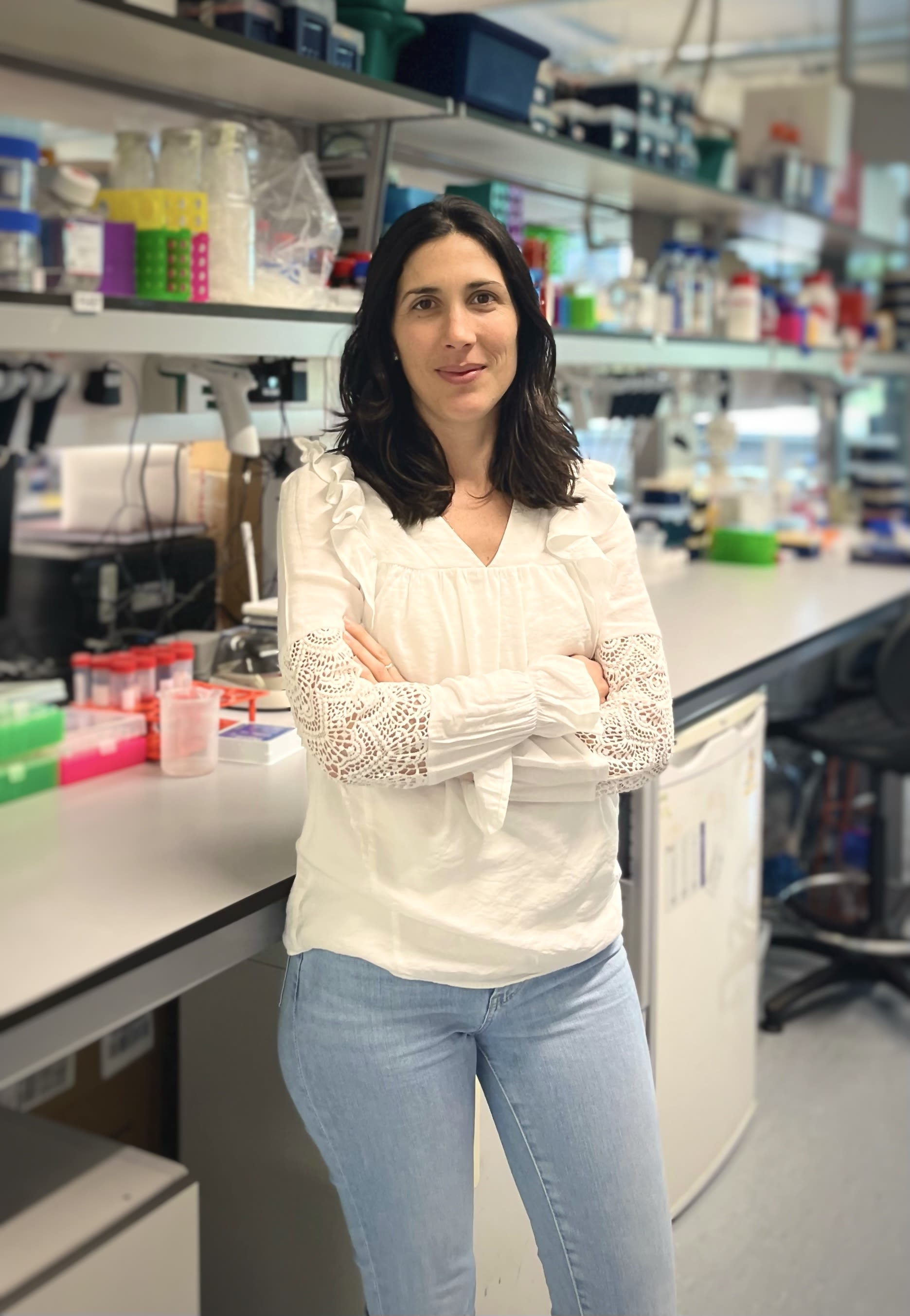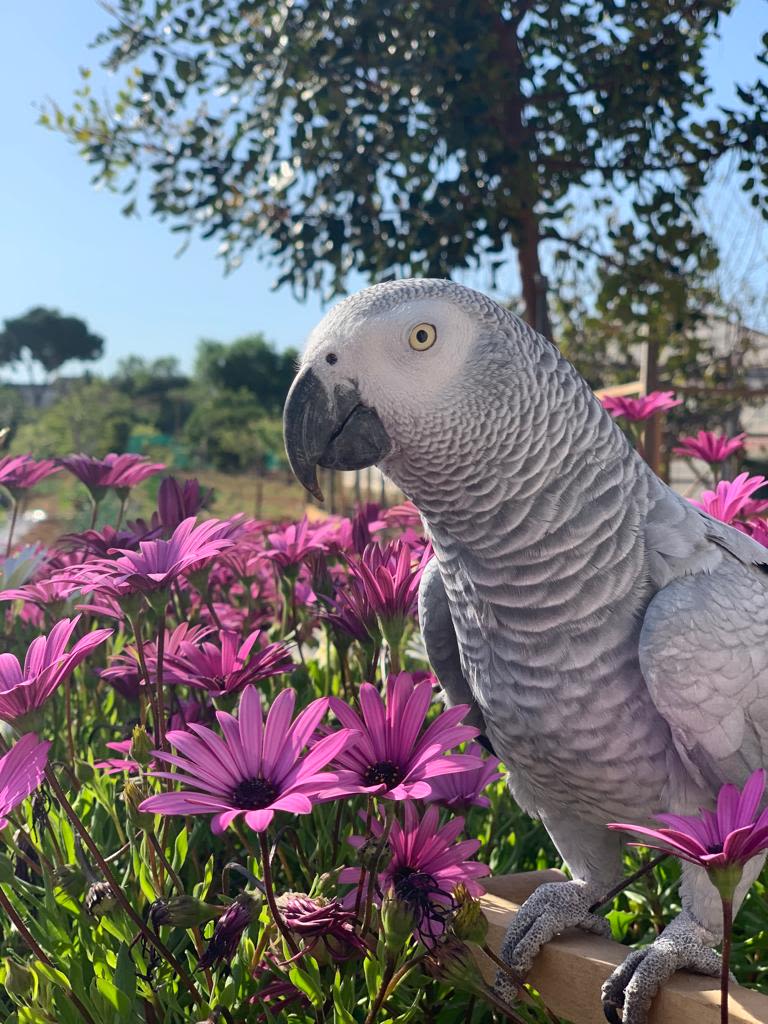Clara Sanz Nogués
Postdoctoral Researcher

Work
What’s your job title?
I am a postdoctoral researcher at the Regenerative Medicine Institute (REMEDI) at the University of Galway.
How long have you been working here?
I started my PhD in October 2010 and have been working in REMEDI since.
Where did you work before this position?
Before I joined REMEDI I did a research internship at the laboratory of Prof Noel Lowndes, (Department of Biochemistry) at the University of Galway. I spend 10 months doing my research project which I needed to complete for my BSc in Biotechnology (Polytechnic University of Valencia, Spain). I liked Galway and the University environment so much that I decided to stay to do a PhD here… If someone had told me at that time that I would be living in Galway for over 12 years I would not have believed it!
What does your day-to-day look like?
Every day can be very different!!... and this is one of the things that I like the most about my job. Some of the tasks that I do as part my job are: planning and performing experiments in the laboratory, problem-solving issues that come up with experiments, helping colleagues in the lab with their day-to-day activities, generating graphs and PowerPoint presentations of my results, writing grants, manuscripts or funding reports, attending laboratory meetings with my mentor and my lab colleagues, attending and/or presenting at seminars and national or international conferences, and teaching students from the MSc in Regenerative Medicine and MSc in Cellular Manufacturing and Therapy at the University of Galway.
When would someone come to you?
I think colleagues come to me when they need both technical support in the laboratory and for personal/emotional support. They also come to me for brainstorming, generating new ideas and/or discussing recent results, or to organize fun events in the lab!
What’s a work-related accomplishment that you’re really proud of?
I guess one of the biggest accomplishments for me has been to complete my PhD abroad as well as learn a new language. Once I finished my PhD, I wanted to continue my studies by doing an MSc in Clinical Research at the University of Galway. I did this course part-time during my full-time post-doctoral job at REMEDI. Although at the time it was tough to manage attendance to classes, homework, studying and exams with my full-time job, I am very proud that I was able to complete the course with good marks and learn many new skills that have helped me with my career development.
What’s the biggest misconception people have about your position?
Probably that I do not have a permanent job. I have to explain to my family and friends that at the moment I am on rolling contracts, which are associated with specific projects. I tell them that I need to write grant applications that will provide me with money to undertake my research and to pay my salary. But this usually will only allow me to work from periods of 1 to 4 years. Also that my job is not 9 to 17, five days a week. On most occasions my job allows me working flexible hours, which is something that I value about my job, although sometimes I have to work on the weekends or outside of the standard working hours.
What’s something you find challenging about your work (What are the toughest challenges you’ve had at work)?
Probably one of the toughest challenges of my work as a researcher is adjusting an anticipated project trajectory following unexpected results. Most researchers know that although some of the experiments we perform may result in spectacular success, a large percentage of the experiments (70% or even more) will fail. Sometimes experiments may fail due to poor experimental design or technical errors, but in most of these cases, these problems can be fixed. I always think that in these cases, negative outcomes are great learning experiences. Every failure conveys valuable information, and this allows you to make improvements for next time. However, one of the most frustrating times for me has been when my results were not reflective of the published literature. Getting these ‘negative’ results can be very frustrating, especially when you have dedicated a lot of time and effort to do such experiments. Nevertheless, I believe in the importance of transparency, scientific integrity and rigour when performing and reporting results. And at the end of the day, a ‘negative’ result is also a result, if the methodology employed is rigorous.
What’s the coolest thing you’re working on right now?
I am interested in developing new advanced therapies, including the use of mesenchymal stromal cells (MSCs) and microRNAS (small RNA molecules that control gene expression) for treating muscle wasting in patients with critical limb ischaemia. Muscle loss in these patients occurs due to reduced blood flow to the legs (also called ischaemia). This can cause some changes in the skeletal muscle fibres leading to muscle wasting and sometimes amputations. This result in hospitalization, loss of physical independence and increased mortality. My current preclinical results have shown that MSC treatment can ameliorate ischaemia-induced skeletal muscle damage and therefore it could be used as a potential cell therapy for these patients. Furthermore, we have recently identified microRNAs that are downregulated in ischaemic muscle and could be used as potential biomarkers of muscle health and/or as therapeutic targets.

Personal/Social
What was your first paying job?
When I was an undergraduate student, I worked on some temporary jobs. One job that I enjoyed very much was serving food and drinks at the Formula 1 Valencia Street Circuit, which hosted the F1 European Grand Prix. It was great because I could see all the cool F1 cars and the fun for free!
Are you a cat or dog person (or neither)?
I love animals but I never have had a cat or a dog. However, I have a parrot (living in Spain). His name is Yako, he is a Yaco African grey parrot (we were not very original giving him a name!) his body is grey and has a red tail, and yes, he can talk, and indeed in Catalan! He is quite funny, he can mimic the voice tone of people very much, as well as make many sounds, like the bark of a dog or the meow of a cat, so in the end, it is like if we have a dog or a cat at home too! Did you know that grey African parrots can live up to 60 years??? Yako is now 22 years old, just a teenager!
What’s the best place you’ve travelled to?
One of my favourite places that I have visited is Bali in Indonesia. I loved everything about this small island, the landscape, the culture, the kindness of the people, the food, everything! From Europe, I would choose Croatia, for its stunning nature (loved the Plitvice lakes), beautiful beaches and islands, and charismatic cities, I’ve seen in Zadar one of the most beautiful sunsets ever.
What’s your favourite thing to do on the weekends?
I like to relax, but when I say relax, I don’t mean being lying down on the sofa all day!....I always like to be doing something, and fortunately, I have too many things that I like doing! I like cooking, gardening, doing yoga and painting and doing creative and artistic things, but I also like spending quality time with my family!
